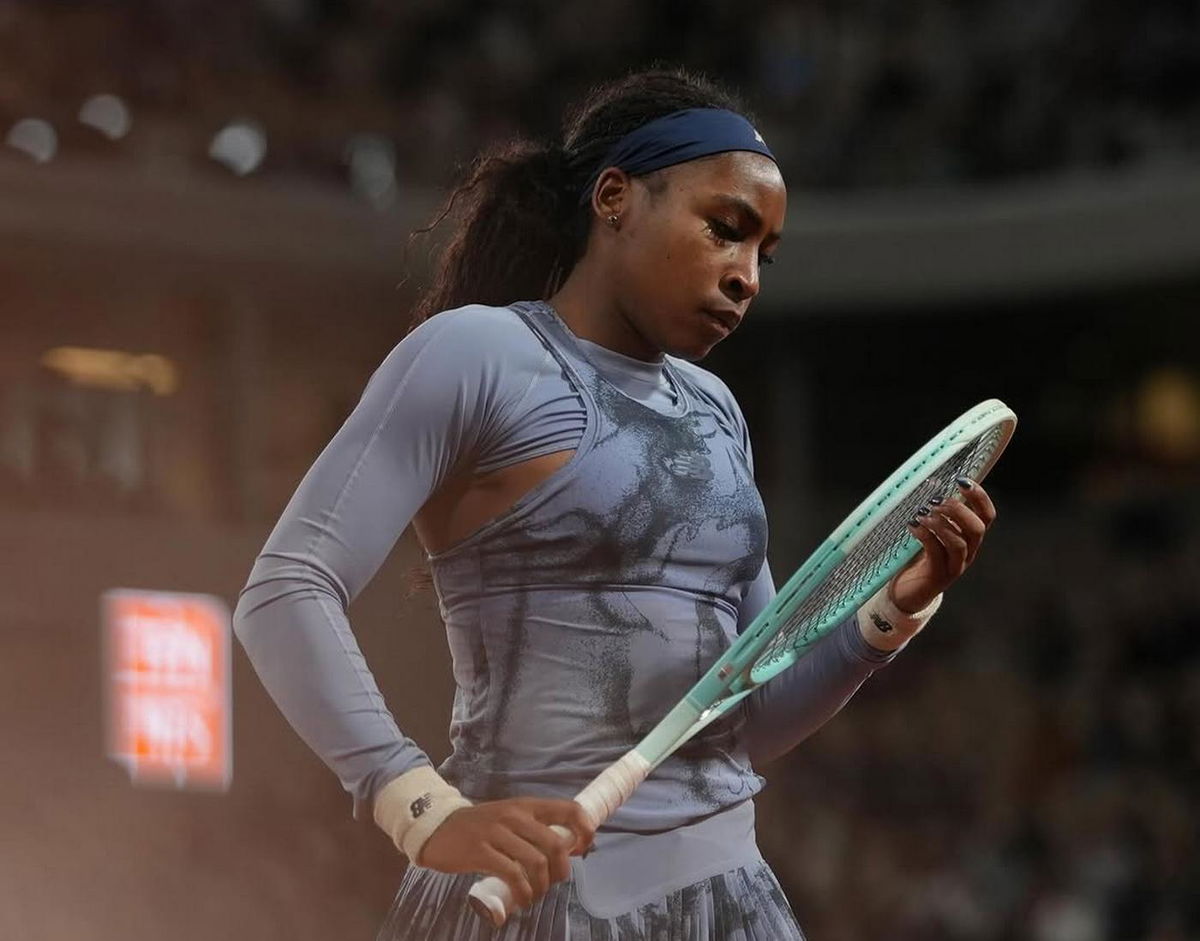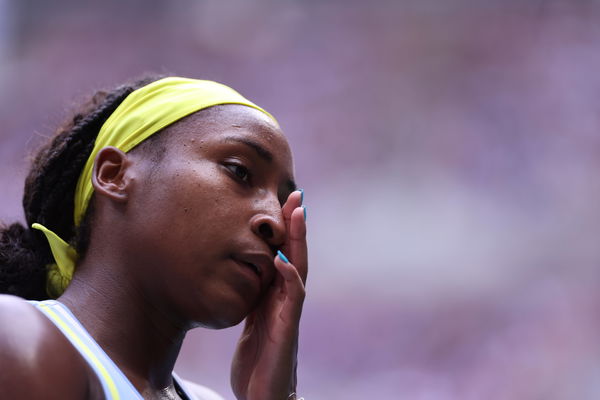
Imago
Image Credits: WTA/Instagram

Imago
Image Credits: WTA/Instagram
In 2016, Madison Keys became the celebrity ambassador for FearlesslyGiRL, an organization dedicated to empowering girls and women. Her main objective was to spread awareness about cyberbullying and online hate. It was back in 2021 when former Australian Open champion Sloane Stephens opened up about the emotional toll of life online. After a third-round exit to Angelique Kerber at the US Open, Stephens received over 2,000 messages laced with abuse and fury. “I am human,” she wrote on Instagram. That was four years ago. Today, four years later, sadly, nothing’s really changed. Now, Coco Gauff is drawing attention to this growing concern.
Watch What’s Trending Now!
Gauff is riding high on a French Open title run where she stormed back from a set down to beat World No.1 Aryna Sabalenka. The Atlanta-born star lifted her maiden Roland Garros crown and clinched her second career Grand Slam singles title. But the grass season brought her back down to Earth, with a surprise first-round exit at the Berlin Ladies Open to China’s Xinyu Wang. Winning and losing are a part of the game. But some “fans” take it too far.
At a press conference before the Berlin Open, the 21-year-old opened up about the disturbing level of abuse she and her boyfriend, Jalen Sera, faced online. “It’s the worst you can get. Death threats, to your family, to yourself,” said the World No.2. “I’ve had people DM my boyfriend and friends about it. Racist comments, like all you can imagine. Nudity, things like that. It’s a gross kind of thing that we have going on in tennis.”
ADVERTISEMENT

Imago
Coco Gauff USA losing to Emma Navarro USA at the US Open 2024 TENNIS : US Open 2024 01/09/2024 AntoineCouvercelle/Panoramic PUBLICATIONxNOTxINxFRAxBEL
Gauff continued, “It’s something that we have to keep bringing awareness to. I would love for some of the social media platforms to get involved, not only when it comes to tennis players. Influencers, other athletes, they all get these comments, so it’s something that can be addressed.”
She’s not alone in her frustrations. World No.3 Jessica Pegula was also subject to vile messages after a loss to Lois Boisson at the quarterfinals of the French Open. She called out “insane and delusional” sports bettors by sharing some of the messages she had received.
ADVERTISEMENT
The 30-year-old took to Instagram to show just how out of control hate comments can get. “Every person on tour deals with it. It’s so bad,” she wrote. “Those are just really small snippets. I get told my family should get cancer and die from people on here on a regular basis. Absolutely crazy.”
There’s data backing these stories, and it’s grim. A Reuters report revealed that angry gamblers are behind nearly half of all social media abuse targeting tennis players. Monitoring is now underway in 39 languages as the WTA, ITF, and other governing bodies try to shield players from cyberbullying. It’s a serious problem with global reach.
ADVERTISEMENT
There are some tools in place, but they’re not foolproof. In January 2024, the Signify Group launched its Threat Matrix service to tackle this very issue. The system, blending AI with human monitoring, is built to detect and filter abusive content directed at athletes. Every player competing in WTA and ITF events, including Grand Slams, is covered under the program.
But even with the service running in the background, harmful content still finds its way onto players’ timelines.
Coco Gauff has highlighted the responsibility of social media platforms to regulate these messages.
ADVERTISEMENT
Coco Gauff believes it’s time for social media platforms to “step in”
At the press conference in Berlin, Coco Gauff didn’t hold back when discussing where social media companies fall short. “I know the WTA is doing what they can to make us feel protected, but I definitely think that a lot of these platforms can step in as well,” she said. “I think TikTok does a better job of filtering comments, so you don’t really see it. But Instagram is, for me, the worst with the comment filtering. I see basically everything on there. I try to do it on my own account, to filter certain words, but people get creative and spell it out in different ways.”
Jessica Pegula has said the same, and she wants more action from the platforms and the gambling industry. She said, “But it’s not enough on its own. It’s time for the gambling industry and social media companies to tackle the problem at its source and act to protect everyone facing these threats.”
ADVERTISEMENT
The scale of the abuse is alarming. According to figures from Signify, the ITF, and WTA, around 8,000 abusive or threatening messages were sent publicly to 458 tennis players in 2024. Even more shocking: just five WTA players received over 26% of that abuse. The numbers make it clear, this isn’t an isolated problem; it’s systemic.
Top Stories
How Much Did Aryna Sabalenka’s Australian Open Jewelry Cost? Designer and Materials Explained

Is Elena Rybakina Dating? All You Need To Know About WTA Star’s Boyfriend

Aryna Sabalenka to “Crying” and Tells Team to “F*** You” After Australian Open Loss

Breaking: Elena Rybakina Takes Down Aryna Sabalenka in Australian Open Final

Elena Rybakina’s Coach Slammed as Australian Open Final Tension Boils Over: “So Gross”

And it goes beyond just online abuse. This week, a man accused of stalking British tennis star Emma Raducanu was denied tickets to Wimbledon. Over in Miami, Iga Swiatek faced live insults and abuse during a practice session. The line between virtual and physical threats is becoming worryingly thin.
Tennis players may be global icons, but they’re not immune to the darker sides of fame. Is it time for the platforms and punters to finally take responsibility?
ADVERTISEMENT
ADVERTISEMENT
ADVERTISEMENT
ADVERTISEMENT
